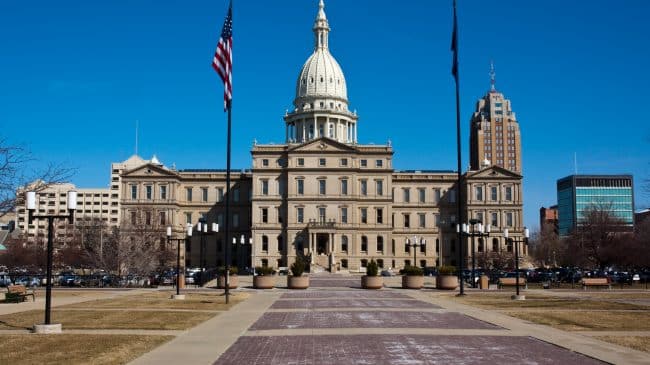After passage last year, the necessity of Michigan’s local retirement system transparency law has been repeatedly validated.
Last month, the Michigan Department of Treasury denied 69 percent of 103 waiver applications from local governments with severely underfunded pension or other post-employment benefits (OPEB) plans. The waiver would have allowed the local governments to avoid filing a corrective action plan to address their underfunding.
The Michigan Department of Treasury’s work is the first part of new legislation passed in late 2017 that was designed to create a new framework for reporting standards and shore up the fiscal health of locally administered pension plans.
Collectively, local jurisdictions in Michigan are over $18 billion in the red. There are hundreds more local government pension and retiree health care plans that have yet to make annual filings to the state — the 103 plans that applied for a waiver were also just a selection from the 114 that were deemed underfunded in March during the first wave of fiscal year end-date plans.
To tackle the challenge of hundreds of struggling plans with billions in unfunded liabilities, Michigan adopted nation-leading standards for local governments’ reporting as they pertain to funding and corrective plans on improving the solvency of their pension systems and OPEB plans.
Under the new legislation, every local government is expected to submit pension and OPEB plan summaries on an annual basis using a standardized set of assumptions and methods. This was done primarily to more accurately measure the fiscal stress and solvency of these plans.
If, in turn, a local government’s pension or OPEB plan is deemed “underfunded” (i.e. in danger of insolvency) it then needs to submit a corrective action plan within 180 days. Local governments, however, were also given an option to apply for a waiver to do so.
The tally: out of 103 waivers submitted, only 23 were fully approved, another eight requests were granted partially (i.e. for some, and not all, of the systems administered by the locality). That leaves 72 waiver requests denied.
Most of the Michigan localities were deemed “underfunded” because they stack up poorly in terms of fiscal health against their peers in other states. Michigan Gov. Rick Snyder, who signed the legislative package shortly after it was almost unanimously passed last year, has established a Municipal Stability Board (MSB) within the state Treasury Department to set the new funding standards and establish a state-level solvency evaluation process.
Corrective action plans are the final step of the four-phase process under the 2017 legislation aimed at enhancing the long-term solvency of the locally administered pension plans in the Great Lakes state.

